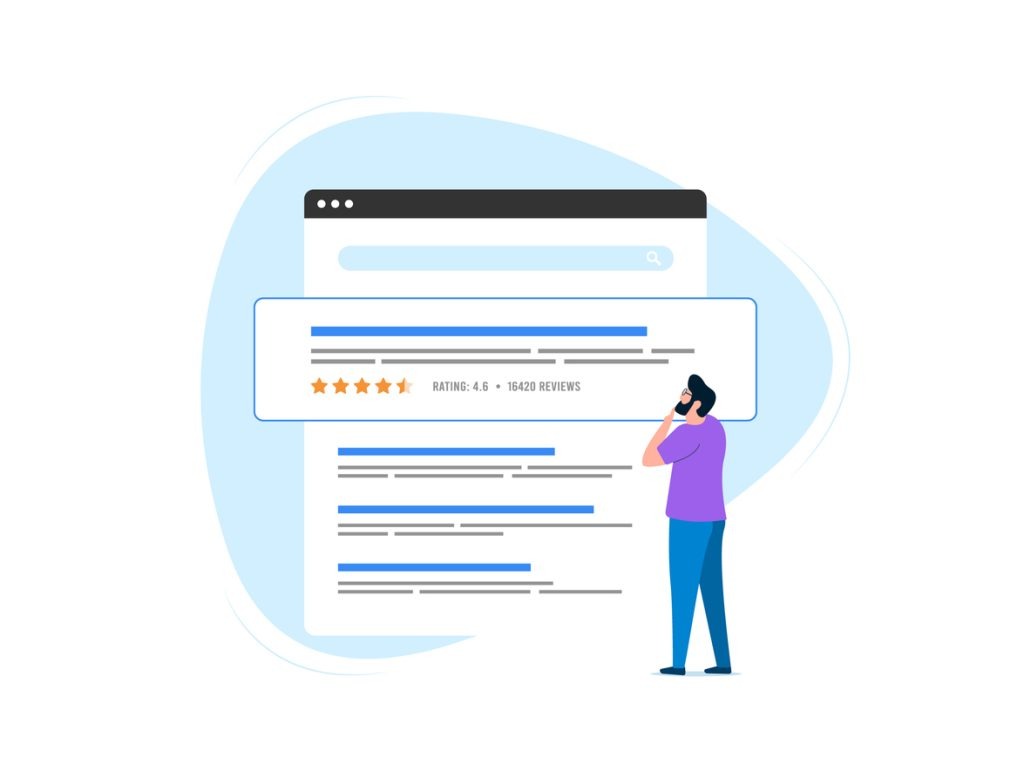5 Local SEO Mistakes That Are Costing Your Business Customers (And How to Fix Them)
Your competitor down the street is getting customers you should be getting. While you’re scratching your head, wondering why foot traffic has slowed down, they’re booking appointments and ringing up sales from customers who found them through a simple Google search.
The harsh reality? Most local businesses are hemorrhaging potential customers because of easily fixable local SEO mistakes. When someone searches for “coffee shop near me” or “plumber in Chicago,” Google decides which businesses show up first. If your business isn’t appearing in those crucial top spots, you’re practically invisible to potential customers actively looking for what you offer.
Local search drives real business results. Studies show that 76% of people who conduct a local search visit a business within 24 hours, and 28% of those searches result in a purchase. That’s not just website traffic we’re talking about, that’s actual paying customers walking through your door or picking up the phone to hire you.
The good news is that most of your competitors are making the same fundamental local SEO mistakes. Fix these five critical errors, and you’ll start capturing customers that are currently going to other businesses. Let’s dive into what’s costing you money and how to turn things around.
Mistake #1: Incomplete or Inconsistent Google Business Profile

Your Google Business Profile is your digital storefront, and most businesses are leaving money on the table by treating it like an afterthought. If you’ve claimed your listing but haven’t fully optimized it, you’re essentially putting up a “Closed” sign when customers are ready to buy.
The Problem
Walk through your neighbourhood and count how many businesses have incomplete Google Business Profiles. You’ll find missing phone numbers, outdated hours, no website links, and business descriptions that say nothing useful. Some businesses haven’t even uploaded a single photo, while others show pictures from five years ago when they had completely different branding.
Even worse is inconsistent information. Maybe your Google listing says you’re open until 9 PM, but your website says 8 PM. Your Facebook page lists a different phone number than Google. Your address is formatted differently across platforms. This confusion doesn’t just frustrate customers, it tells Google that your business information isn’t trustworthy.
Why It Matters for Your Bottom Line
Google’s algorithm prioritizes businesses that provide complete, accurate, and consistent information. When your profile is incomplete or inconsistent, Google shows your business less frequently in local search results. You drop from the coveted “map pack” (those top three local results) down to the regular search results, where fewer people click.
Think about it from a customer’s perspective. If they can’t find your current hours or phone number easily, they’ll click on your competitor’s listing instead. Every incomplete field is a potential lost customer.
The Fix: Your Google Business Profile Optimization Checklist
Start by claiming and verifying your Google Business Profile if you haven’t already. Then work through this optimization checklist:
Complete every single field: Business name, address, phone number, website, hours, categories, and business description. Google rewards completeness.
Upload high-quality photos regularly: Include exterior shots, interior photos, your team at work, and your products or services in action. Businesses with photos receive 42% more requests for directions and 35% more clicks to their websites.
Write a compelling business description: Use your main keywords naturally while explaining what makes your business unique. Focus on what customers care about, not industry jargon.
Keep your hours updated: This includes holiday hours, seasonal changes, and any temporary modifications. Outdated hours are one of the fastest ways to lose potential customers.
Add your service areas: If you serve customers beyond your physical location, specify those areas. This helps you show up in searches from surrounding communities.
Enable messaging: Let customers contact you directly through your Google listing. Quick responses can turn searchers into customers faster than any other method.
Pro Tip for Multiple Locations
If you operate multiple locations, create separate Google Business Profiles for each one. Never use a single profile for multiple locations, Google will penalize you for it. Each location should have its own unique content, photos, and local phone number when possible. This approach helps you dominate local search results across all your service areas.
For businesses with multiple service pages, each location can link to location-specific service pages to maximize your local search visibility.
Mistake #2: Ignoring Online Reviews

Reviews aren’t just nice to have, they’re a ranking factor that directly impacts your visibility in local search results. Yet most businesses either ignore reviews entirely or handle them so poorly that they’re actually hurting their reputation.
The Problem
Some businesses have five reviews from 2019 and wonder why they’re not showing up in local searches. Others have dozens of reviews but never respond to any of them, missing opportunities to engage with customers and show potential clients that they care about service quality.
The worst mistake? Getting defensive or argumentative with negative reviews. Nothing kills your online reputation faster than a business owner having a public meltdown in the review section.
The Impact on Your Business
Here’s a number that should grab your attention: 87% of consumers read online reviews before visiting a local business. Your review profile isn’t just about reputation, it’s about whether people choose you over competitors.
Google also uses review signals as a ranking factor. Businesses with more recent, positive reviews tend to rank higher in local search results. The review velocity (how often you get new reviews) matters more than just having a high star rating.
The Fix: Building Your Review Generation Strategy
Make asking for reviews part of your standard process: After completing a service, sending a product, or finishing a transaction, ask satisfied customers to leave a review. The keyword is “satisfied”, don’t ask everyone, ask people who had a positive experience.
Timing matters: Ask for reviews when the positive experience is fresh in their minds. For service businesses, this might be immediately after completion. For retail, it could be a week after purchase when they’ve had time to use the product.
Make it easy: Send direct links to your Google Business Profile review section. The fewer clicks required, the more reviews you’ll receive.
Response strategy: Respond to every review, both positive and negative. Thank positive reviewers and address negative concerns professionally. Your responses show potential customers how you handle problems.
Handling Negative Reviews Professionally
When you get a negative review, resist the urge to defend yourself immediately. Instead, acknowledge the customer’s experience, apologize for any inconvenience, and offer to resolve the issue offline. This approach shows potential customers that you take feedback seriously and work to fix problems.
Example response: “Thank you for your feedback, Sarah. I’m sorry your experience didn’t meet your expectations. I’d love to discuss this further and see how we can make things right. Please call me directly at [phone number] so we can resolve this quickly.”
Mistake #3: Missing Local Keywords in Website Content

Your website might look great, but if it’s not speaking Google’s local search language, you’re invisible to customers in your area. Most businesses optimize for broad terms while completely ignoring the local keywords that actually drive foot traffic and phone calls.
The Problem: Generic vs. Local Keyword Targeting
Too many businesses target generic keywords like “marketing agency” or “Italian restaurant” instead of local variations that customers actually search for. Meanwhile, your potential customers are typing “marketing agency in Phoenix” or “Italian restaurant downtown Denver” into Google.
Here’s the difference in action: A pizza restaurant optimizing for “pizza restaurant” competes against every pizza place in the world. The same restaurant optimizing for “pizza restaurant in downtown Austin” competes against maybe 20 local businesses, much better odds.
Understanding Local Search Intent
When people search for local businesses, they use specific patterns:
- “[Service] near me”
- “[Service] in [City]”
- “[Service] [Neighbourhood]”
- “[Service] [City, State]”
Your website content needs to match these search patterns naturally. This doesn’t mean stuffing keywords awkwardly into every sentence, it means writing content that addresses local search intent while providing real value.
The Fix: Local Keyword Research and Implementation
Start with keyword research tools: Use Google Keyword Planner, Ahrefs, or SEMrush to identify local variations of your main keywords. Look for terms with decent search volume but lower competition.
Analyze your competitors: See which local keywords your top-ranking competitors target. Tools like SEMrush can show you exactly which terms drive traffic to their websites.
Create location-specific content: Instead of generic service pages, create pages that target your specific service areas. A roofing company might have separate pages for “roof repair in Arlington” and “roof repair in Fort Worth.”
Optimize your homepage: Include your city or region in your main heading and throughout your homepage content. Your homepage should clearly communicate where you’re located and whom you serve.
Use local keywords in your blog content: Write about local events, news, or issues related to your industry. A landscaping company might write about “Best Plants for Colorado Springs Winters” or “Xeriscaping Tips for Denver Homeowners.”
Warning: Avoid Keyword Stuffing
While local keywords are important, cramming them unnaturally into your content hurts more than it helps. Google’s algorithm is sophisticated enough to recognize keyword stuffing and will penalize your site for it.
Instead of: “Our Denver plumbing company provides Denver plumbing services to Denver residents in Denver, Colorado.”
Try: “Our experienced plumbing team serves homeowners throughout Denver and surrounding communities with reliable, affordable plumbing services.”
The second example sounds natural while still including your target location and keywords.
Mistake #4: No Local Citations or Inconsistent NAP Data

Citations are mentions of your business information across the web, and they’re a crucial local SEO ranking factor that most businesses completely ignore. Even worse, many businesses have inconsistent NAP (Name, Address, Phone) data across different platforms, which confuses Google and hurts their local rankings.
The Problem: Information Chaos Across the Web
Your business information appears in more places online than you realize. Beyond your website and Google Business Profile, your NAP data might be listed on Yelp, Yellow Pages, Facebook, industry directories, local chamber of commerce websites, and dozens of other platforms.
When this information is inconsistent, maybe your address is abbreviated on one site but spelled out on another, or your phone number includes dashes on some platforms but not others, Google doesn’t know which version to trust. This uncertainty directly impacts your local search rankings.
Why Google Cares About Citation Consistency
Google’s local search algorithm uses citations as a trust signal. When your business information appears consistently across multiple authoritative websites, it confirms to Google that your business is legitimate and established in the community.
Inconsistent citations have the opposite effect, they make Google less confident about your business information, which translates to lower rankings in local search results.
The Fix: Citation Audit and Management Strategy
Start with a citation audit: Search for your business name online and make a list of every platform where your information appears. Note any inconsistencies in formatting, phone numbers, addresses, or business names.
Prioritize major platforms: Focus first on high-authority directories like Google My Business, Yelp, Facebook, Apple Maps, and Bing Places. These carry more weight with search engines.
Industry-specific directories: Find directories specific to your industry. A restaurant should be listed on Zomato and OpenTable, while a contractor should appear on Angie’s List and HomeAdvisor.
Local directories: Don’t forget about local chamber of commerce websites, city business directories, and regional platforms specific to your area.
Maintain consistency: Choose one format for your business information and use it everywhere. If your official address is “123 Main Street,” don’t use “123 Main St.” on other platforms.
Tool Recommendations for Managing Citations
Moz Local: Scans the web for your business listings and identifies inconsistencies across major platforms.
BrightLocal: Provides citation tracking and helps you manage listings across multiple directories.
Yext: Automates the process of updating business information across hundreds of platforms simultaneously.
For businesses needing comprehensive local SEO support, professional SEO services can handle citation management as part of a broader local optimization strategy.
Mistake #5: Weak Local Content Strategy

Content marketing isn’t just for big corporations, local businesses need content strategies too. The problem is that most local businesses either create no content at all or produce generic content that could apply to any business anywhere in the world.
The Problem: Missing Local Content Opportunities
Your competitors are probably writing blog posts about industry trends or general tips, completely missing the local angle that could help them dominate search results in your area. Meanwhile, potential customers are searching for information about local events, regulations, weather impacts, and community-specific concerns related to your industry.
Local content opportunities most businesses miss:
- Local event participation and sponsorships
- Community involvement and charitable activities
- Local industry news and its impact on customers
- Area-specific challenges your service solves
- Seasonal considerations unique to your region
The Business Impact of Local Content
Local content serves multiple purposes: it helps you rank for local search terms, establishes you as a community expert, and gives you content to share on social media that resonates with your local audience.
A local HVAC company writing about “Preparing Your Air Conditioner for Phoenix Summers” will rank better for Phoenix-related searches than one writing generic articles about air conditioner maintenance.
The Fix: Building Your Local Content Calendar
Seasonal content: Plan content around local weather patterns, seasonal business cycles, and community events. A landscaping company might write about “Fall Leaf Cleanup Tips for Minneapolis Homeowners” or “Snow Removal Services in Minnesota.”
Local event coverage: Attend community events, sponsor local organizations, or participate in charity drives, then write about your involvement. This content naturally includes local keywords and shows community engagement.
Neighbourhood-specific pages: Create detailed pages about the specific neighbourhoods or cities you serve. Include information about local landmarks, demographics, and how your services address area-specific needs.
Local news angles: Monitor local news for stories that relate to your industry. A security company might write about local crime statistics or new safety regulations affecting homeowners in their area.
Examples of Successful Local Content
Restaurant example: “Best Date Night Spots in Downtown Salem” (includes their restaurant among others, positions them as local experts)
Real estate example: “Moving to Austin: A Complete Neighbourhood Guide” (targets people relocating to their area)
Home services example: “How Denver’s Hard Water Affects Your Plumbing” (addresses a specific local issue their services solve)
The key is creating content that’s genuinely useful to your local audience while naturally incorporating the keywords that help you rank in local searches.
Conclusion: Turn These Fixes Into Customers
These five local SEO mistakes are costing you customers right now, but the flip side is exciting: fixing them gives you an immediate competitive advantage. While your competitors continue making these errors, you can capture the customers they’re losing.
The ROI potential is significant. Local businesses that invest in proper local SEO typically see increases in phone calls, website visits, and foot traffic within 90 days. More importantly, these are qualified leads from people actively searching for your services in your area.
Start with your Google Business Profile optimization, it’s free and can show results quickly. Then work through the other areas systematically. You don’t need to fix everything overnight, but you do need to start.
Ready to stop losing customers to competitors who simply show up better in local search results? We offer a free local SEO assessment that identifies exactly which of these mistakes are hurting your business and provides a prioritized action plan to fix them.
Don’t let another month of potential customers slip away. Your business deserves to be found by the people who need your services most.










